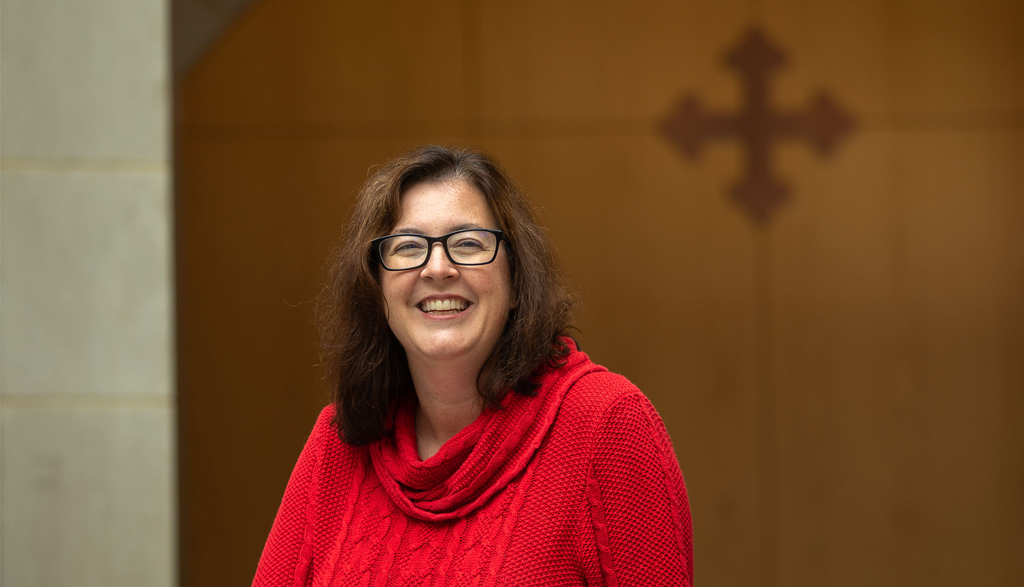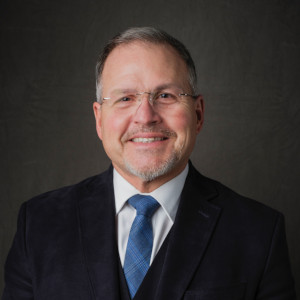Words and Thoughts of President Alan R. Miciak
Celebrating JCU Scholars and Scholarship

Teddy Nemunaitis, ‘17 remembers driving home after his first day as an undergraduate research fellow, having been assigned to Dr. Trine Jorgensen’s immunology lab as part of the John Carroll-Cleveland Clinic Summer Research partnership.
He would not have predicted at that moment that he would one day be elected president of his Pharmacy school honor society or named by Ohio State faculty as the Graduating PharmD Student of the Year. “I remember stepping foot into the lab and realizing that I had yet to take a course in immunology,” Nemunaitis says.
Nemunaitis recalls long, sometimes difficult days that first research summer as he scrambled up one learning curve then another. He recalls mixing the wrong reagents for an enzyme-linked immunosorbent assays (ELISA) experiment aimed at detecting and quantifying a specific protein.
“You learn pretty quickly in research that mistakes happen, and that setbacks are more common than victories,” he says. “My Jesuit education taught me to persevere through times of doubt. I learned that trial and error leads to discovery.”
When he returned to John Carroll for his senior year as a biology major, Nemunaitis had earned more than a summer research stipend. He had found a purpose and a path forward. Nemunaitis graduated summa cum laude with a Doctor of Pharmacy from Ohio State University in 2021 and is currently pursuing his Health-System Pharmacy Administration Masters.
In 2017, he presented his summer research (an analysis of the effects of type 1 interferon deficiency on B-cells in lupus prone mice) at that year’s Celebration of Scholarship. Nemunaitis counts his research experience as a turning point: “Seeking a cure for Lupus in Dr. Jorgensen’s lab challenged me to look beyond the status quo and to look past the immediate setbacks in order to see the larger possibilities.”
Celebration of Scholarship
This year, more than 100 John Carroll Undergraduate students participated in the 2022 Celebration of Scholarship. More than 95 presentations ranged from the policy implications of a digital service tax on tech giants to the effects of drought on a key global crop such as broccoli.
John Carroll’s Office of Sponsored Programs hosted a faculty research panel to coincide with Celebration of Scholarship, featuring four of the more than 24 active projects campus wide.
Professor of Chemistry Chrystal Bruce, Ph.D. shared an update on her National Science Foundation grant project aimed at better understanding the relationship between institutional barriers that thwart mid-career female STEM faculty and persistently low diversity numbers — race, gender and class — among STEM students across all colleges and university types.
The project, Advancing STEM Careers by Empowering Network Development (ASCEND), aims to support the advancement of mid-career STEM female faculty and create the conditions for more student diversity and success.
Bruce detailed how the grant has created a new alliance — 60 faculty and 15 administrators representing more than 51 institutions across three geographic regions. A steering committee of that larger group has articulated clear short-term goals for the membership and their peers: improved professional development, scholarship productivity, job satisfaction, personal agency, collaborative activities, overall well-being, and career advancement.
“We see the creation of this collaborative community as a foundation for systemic change,” Bruce said. “The relationships formed during this project will extend beyond the grant period and impact institutions outside those participating in the grant, thus creating satisfying and successful careers for women in STEM across the country, eventually leading to an increase in the representation of underrepresented groups in STEM leadership, faculty, and student populations.”
While events such as commencement and homecoming may draw more people to campus, Celebration of Scholarship reminds us of our reason for being. I recall a quote from Wesleyan University President Michael Roth who said: “The richness of the curriculum and high quality of the research and instruction may receive a nod, but they are rarely celebrated. Promoting everything except what happens between faculty and students may be good for short-term appeal, but the result is to make the entire enterprise of higher education more fragile.”
The example of JCU’s Celebration of Scholarship reminds us of Ignatius Loyola’s encouragement of young minds to: “Go forth and set the world on fire.” In the presence of so much research productivity, John Carroll University and its future felt stronger than ever.

